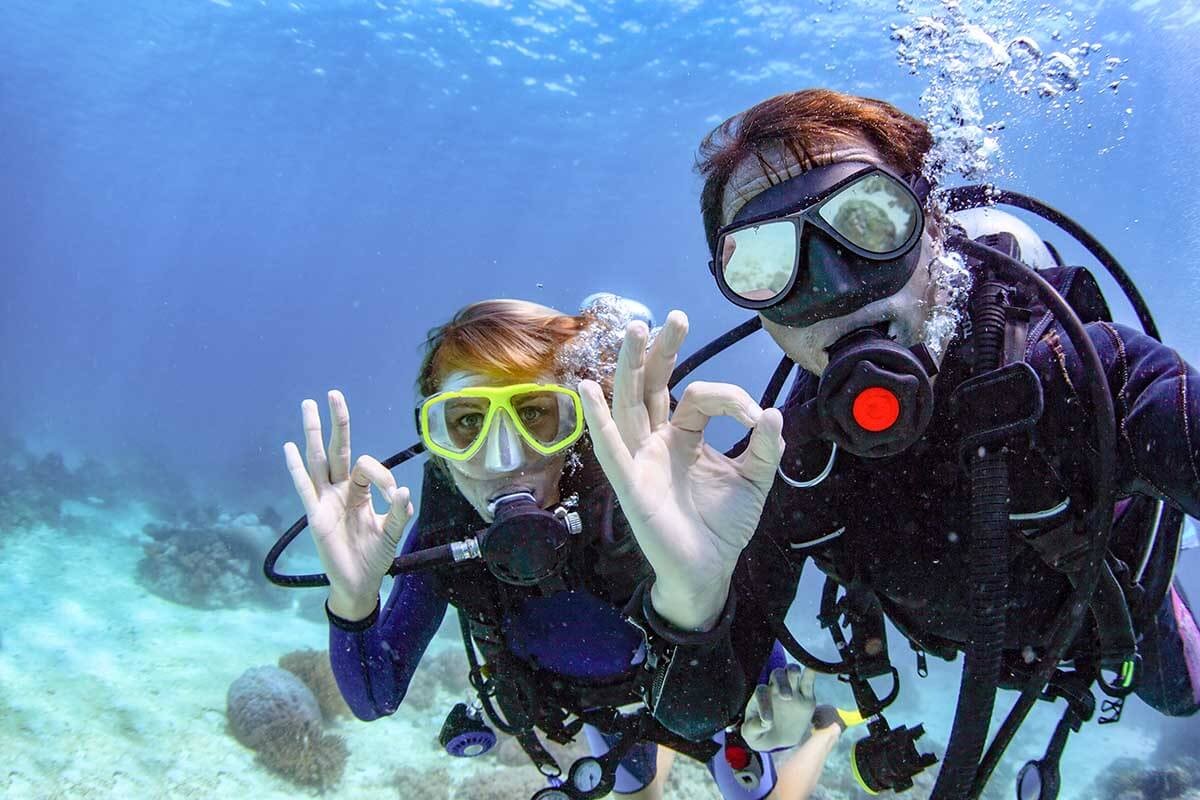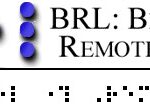Learning how to scuba dive opens up a whole new underwater world. At LEARNS.EDU.VN, we provide a comprehensive guide to help you navigate the initial steps and achieve scuba diving certification. We’ll cover everything from understanding the basic safety rules to selecting the right training agency, ensuring that you are fully equipped to explore the deep blue sea confidently.
1. Is Scuba Diving Safe? Understanding the Risks and Precautions
Is scuba diving safe? Yes, scuba diving is generally safe if you adhere to basic safety rules, stay alert, and avoid unnecessary risks. Diving fatalities, as a percentage of the diving population, have decreased even as the number of certified divers has exponentially increased over the last 20 years.
- Stick to Basic Rules: Never hold your breath, never exceed the limits of your training, and never disturb the marine life.
- Stay Alert: Be aware of your surroundings and your equipment at all times.
- Avoid Unnecessary Risks: Do not dive in conditions that are beyond your skill level or in areas that are known to be dangerous.
According to Divers Alert Network (DAN), a leading organization dedicated to scuba diving safety, most diving accidents are preventable with proper training and adherence to safety guidelines. For more information on diving safety, visit DAN’s website. Divers Alert Network
2. What is the Cost of Scuba Diving Lessons and Certification?
How much does it cost to learn to scuba dive? The cost of scuba diving lessons and certification varies by location. As of June 2022, an entry-level Open Water Diver course from PADI or SSI ranges from £250 in Malaysia to £350 in Egypt to £500 in the UK.
- Location: Prices vary by region due to economic differences and demand.
- Dive Center Services: Some centers offer boat diving or specialized training, which may increase costs.
- Certification Fees & Materials: Costs differ between agencies; always ask for the complete course price, including materials and certifications.
Dive centers sometimes advertise lower prices but add hidden fees in the small print. Always ensure you understand the total cost before committing. As the saying goes, if it seems too good to be true, it probably is.
3. How Long Does it Take to Get Scuba Certified?
How long does it take to get scuba certified? An entry-level recreational course on holiday usually takes 3-5 days, depending on location and logistics. Local club diving courses may take several months, spreading the training over weekends and evenings.
- Holiday Courses: Intensive courses designed for tourists.
- Local Clubs: Flexible schedules, ideal for those with time constraints.
- eLearning Programs: Shorten practical training by completing knowledge development online beforehand.
eLearning can reduce the time spent on practical training by as much as a day, allowing for more diving at your chosen destination.
4. Is Scuba Diving Right for Me? Finding Out if Diving is a Good Fit
Is scuba diving for me? The first step is to get in the water through swimming or snorkeling to see how comfortable you feel. Introductory scuba diving experiences, or “try dives,” allow you to experience scuba diving without committing to a full certification course.
- Swimming and Snorkeling: Test your comfort level in the water.
- Introductory Dives: Provide a taste of scuba diving.
- Agency-Approved Standards: Ensure the introductory dive follows recognized standards, such as PADI’s Discover Scuba Diving, SSI’s Try Scuba, BSAC’s Try Dive, or RAID’s Try Dive.
According to PADI, the Discover Scuba Diving program is a popular option for those who are unsure about pursuing full certification. PADI’s Discover Scuba Diving.
5. Which Scuba Diving Certification Agency Should I Choose?
Which agency should I learn to dive with? It does not matter which scuba diving certification agency you choose.
- Agency Availability: The agency you select is usually determined by what’s available in your chosen diving destination. SSI and PADI are the biggest players in tropical destinations.
- Training Standards: All agencies follow the same basic standards of training but have different approaches to its application.
- Certification Acceptance: Most entry-level certifications from one agency are accepted by another for continuing education.
While agency standards vary slightly, the quality of the dive center and instructors is more critical. It is essential that you receive training appropriate to the conditions in which you will be diving.
6. How to Find the Right Dive Center for Learning Scuba Diving
How do I find the right dive center to learn with? Do some research beforehand to ensure you find a reputable and reliable dive center.
- Local Dive Centers: Visit local dive centers to speak with staff and instructors.
- Online Research: Contact dive centers in advance, stating your requirements and concerns.
- Reviews and Forums: Check TripAdvisor and diving forums like Scubaboard.com or Divers Forum on Facebook.
When choosing a dive center, consider their responsiveness, the quality of their equipment, and the experience of their instructors. Always trust your instincts; if you feel uneasy, walk away.
7. What Does Scuba Diving Training Involve?
What’s involved in the training? All dive training involves three components: theory, practice, and application.
- Theory: Classroom or online learning programs, followed by quizzes and examinations.
- Practice: Confined water skills training in a swimming pool or natural underwater location with easy conditions.
- Application: “Checkout” dives in the open ocean, sea, or lake.
Online learning is highly recommended because it allows you to complete the theory before traveling, leaving more time for diving. However, do not treat dive theory lightly, as it is crucial for your dive skills and survival underwater.
8. Do I Need to Know How to Swim to Scuba Dive?
Do I need to be able to swim? Most agencies require you to swim 200m without swimming aids or 300m with a mask, fins, and snorkel. You must also be able to maintain yourself in water too deep to stand up in by treading water or floating for 10 minutes.
- Swimming Comfort: The key point is not your swimming skills, but rather that you are comfortable and strong enough to maintain yourself at the surface in deep water.
- Pool Time: Spend time in the pool before learning to dive, especially if you have little or no experience in the water.
Although Olympic-level swimming skills aren’t necessary, basic swimming proficiency is essential for safety and comfort.
9. Can Children Learn to Scuba Dive?
Can my kids learn to dive? The minimum age for kids’ introductory scuba classes (shallow pool only) is eight years old. The minimum age for any entry-level certification is 10.
- Maturity Level: Diving requires physical and emotional maturity; parents must decide if their kids are ready for the responsibility.
- Specialist Instructors: Look for dive centers with instructors who specialize in teaching children.
According to the guidelines set by PADI, children aged 10-14 receive the Junior Open Water Diver certification. This certification has certain depth restrictions and requires diving with a certified adult.
10. Medical Conditions and Scuba Diving: What You Need to Know
I have a medical condition, can I learn to dive? All student divers must declare potentially dangerous medical conditions and seek approval from a diving physician before commencing a course.
- Common Conditions: High blood pressure, diabetes, and asthma can be dangerous underwater if untreated.
- Medical Form: Complete the WRSTC medical form and seek advice from a qualified diving medical referee if you answer “yes” to any questions.
For UK readers, DDRC Healthcare charges £5 for an initial telephone consultation: www.ddrc.org, To find an approved medical referee in your area visit www.ukdmc.org.
11. Scuba Diving with a Disability: Adaptive Techniques and Organizations
I have a disability, can I learn to dive? Scuba diving is increasingly recognized for its therapeutic benefits for all types of disability, but the path to certification varies.
- Adaptive Teaching: Most training agencies have adopted adaptive teaching techniques for disabled divers.
- Certification Standards: Divers must meet all course standards unaided to gain a standard certification.
- Specialist Organizations: DDI and HSA provide training for disabled divers and their companions.
According to Disabled Divers International (DDI), adaptive scuba programs enhance the diving experience for individuals with disabilities, improving their physical and mental well-being.
12. Can Certified Divers Join Training Sessions with Kids or Partners?
Can certified divers join their kids or partners during training? Technically yes, but most instructors do not recommend it for entry-level courses.
- Undue Pressure: Certified divers can put undue pressure on the student and the instructor.
- Encouragement: Encourage diving parents and partners to wait until their protégés are certified.
- Continuing Education: For continuing education courses, joining is acceptable.
It’s essential to allow new divers to learn independently without feeling pressured or overshadowed by experienced divers.
13. Do I Have to Buy My Own Scuba Diving Equipment?
Do I have to buy my own equipment? No, there is no requirement to buy equipment for the course.
- Sales Pitch: Some dive outfits may strongly recommend buying equipment during the course, but this is not necessary.
- Personal Equipment: It makes sense for certified divers to own their masks, snorkels, fins, and exposure suits, based on their budget and diving plans.
Although owning personal equipment enhances comfort and fit, renting gear is perfectly acceptable for initial training and occasional dives.
14. Managing Nerves and Anxiety While Learning to Scuba Dive
I am nervous – is that a problem? Nerves are normal and expected before learning to dive. Good training will teach you to manage those nerves.
- Voice Concerns: Be upfront about your concerns and address them before getting into the water.
- Avoid Peer Pressure: Do not succumb to peer pressure from overconfident fellow students.
- Cautious Approach: Students who display respect for the ocean and its dangers make better divers.
Overconfidence can lead to accidents, while a cautious, respectful approach fosters better learning and safer diving practices.
14a. Will I Get Eaten by Sharks?
Will I get eaten by sharks? No, shark attacks are rare, especially for divers.
- Timid Sharks: Most shark species encountered by divers are timid and disappear if disturbed.
- Filter Feeders: The biggest sharks (whale sharks and basking sharks) are filter feeders and pose no threat to humans.
- Great Whites and Tiger Sharks: Attacks by these sharks are very rare for divers.
According to the International Shark Attack File, scuba divers are among the least likely to be attacked by sharks.
15. Is Scuba Diving Fun?
Is it fun? Yes, scuba diving is incredibly fun.
- Life-Changing Experience: Diving is a life-changing experience that can be as enjoyable out of the water as it is beneath the waves.
- Camaraderie: You will always have an instant camaraderie with your fellow divers.
- Continuous Learning: There is always something new to learn.
Diving is fun as long as you take it seriously.
Understanding Search Intent
The search intent behind “How Do I Learn To Scuba Dive” can be broken down into five key areas:
- Informational: Users want to understand the process of learning to scuba dive, including steps, requirements, and costs.
- Educational: They seek detailed guides and resources to support their learning journey, covering theory, skills, and safety practices.
- Comparative: Users aim to compare different certification agencies, dive centers, and training programs to make an informed decision.
- Transactional: They may be looking for specific courses or dive centers to book lessons and start their certification process.
- Navigational: Some users may already know about specific dive centers or agencies and are looking for direct access to their websites.
FAQ About Learning to Scuba Dive
1. What are the basic requirements for learning to scuba dive?
You need to be at least 10 years old, in reasonable physical health, and comfortable in the water. Most agencies require you to swim a certain distance and float for a period of time.
2. How long does it take to get a scuba diving certification?
An entry-level certification course typically takes 3-5 days. Online learning can shorten the practical training time.
3. What is the cost of a basic scuba diving course?
The cost varies by location and dive center, ranging from £250 to £500 for an Open Water Diver course.
4. Which scuba diving agency should I choose: PADI or SSI?
Both PADI and SSI are reputable agencies with similar training standards. The choice depends on availability and personal preference.
5. Do I need to buy my own scuba gear to start learning?
No, dive centers usually provide equipment for training. You may want to invest in personal items like a mask, snorkel, and fins later.
6. Is scuba diving dangerous?
Scuba diving is safe when done with proper training, adherence to safety rules, and awareness of potential risks.
7. What medical conditions can prevent me from scuba diving?
Conditions like high blood pressure, diabetes, and asthma require medical clearance before diving.
8. Can I learn to scuba dive if I have a disability?
Yes, many adaptive programs cater to divers with disabilities, allowing them to enjoy the sport safely.
9. How deep can I dive with an Open Water certification?
An Open Water certification typically allows you to dive to a maximum depth of 18 meters (60 feet).
10. What is the next step after getting my Open Water certification?
The next step is usually the Advanced Open Water Diver course, which expands your skills and allows you to dive deeper and in more challenging conditions.
Ready to Dive In? Start Your Scuba Journey Today with LEARNS.EDU.VN!
Embark on an unforgettable adventure and explore the mesmerizing underwater world with confidence. At LEARNS.EDU.VN, we are dedicated to providing you with the highest quality educational resources and guidance to ensure a safe, enjoyable, and enriching scuba diving experience.
Whether you’re a complete beginner or looking to enhance your diving skills, our comprehensive platform offers a wealth of information, expert tips, and tailored courses to suit your needs. Discover in-depth articles, step-by-step tutorials, and the latest insights from diving professionals, all designed to help you master the art of scuba diving.
Here’s how LEARNS.EDU.VN can help you on your scuba diving journey:
- Find trusted dive centers: Access our curated directory of certified dive centers and instructors worldwide.
- Enroll in personalized courses: Choose from a variety of online and in-person courses designed to fit your schedule and skill level.
- Connect with a vibrant community: Join our active forum to share experiences, ask questions, and connect with fellow diving enthusiasts.
- Stay updated on the latest trends: Receive regular updates on new diving techniques, equipment, and conservation efforts.
Don’t wait any longer to start your scuba adventure! Visit LEARNS.EDU.VN today and take the plunge towards a world of underwater wonders.
Contact Us:
- Address: 123 Education Way, Learnville, CA 90210, United States
- WhatsApp: +1 555-555-1212
- Website: LEARNS.EDU.VN
Let learns.edu.vn be your trusted companion in unlocking the beauty and excitement of the underwater realm. Dive in and discover a new world of possibilities!


